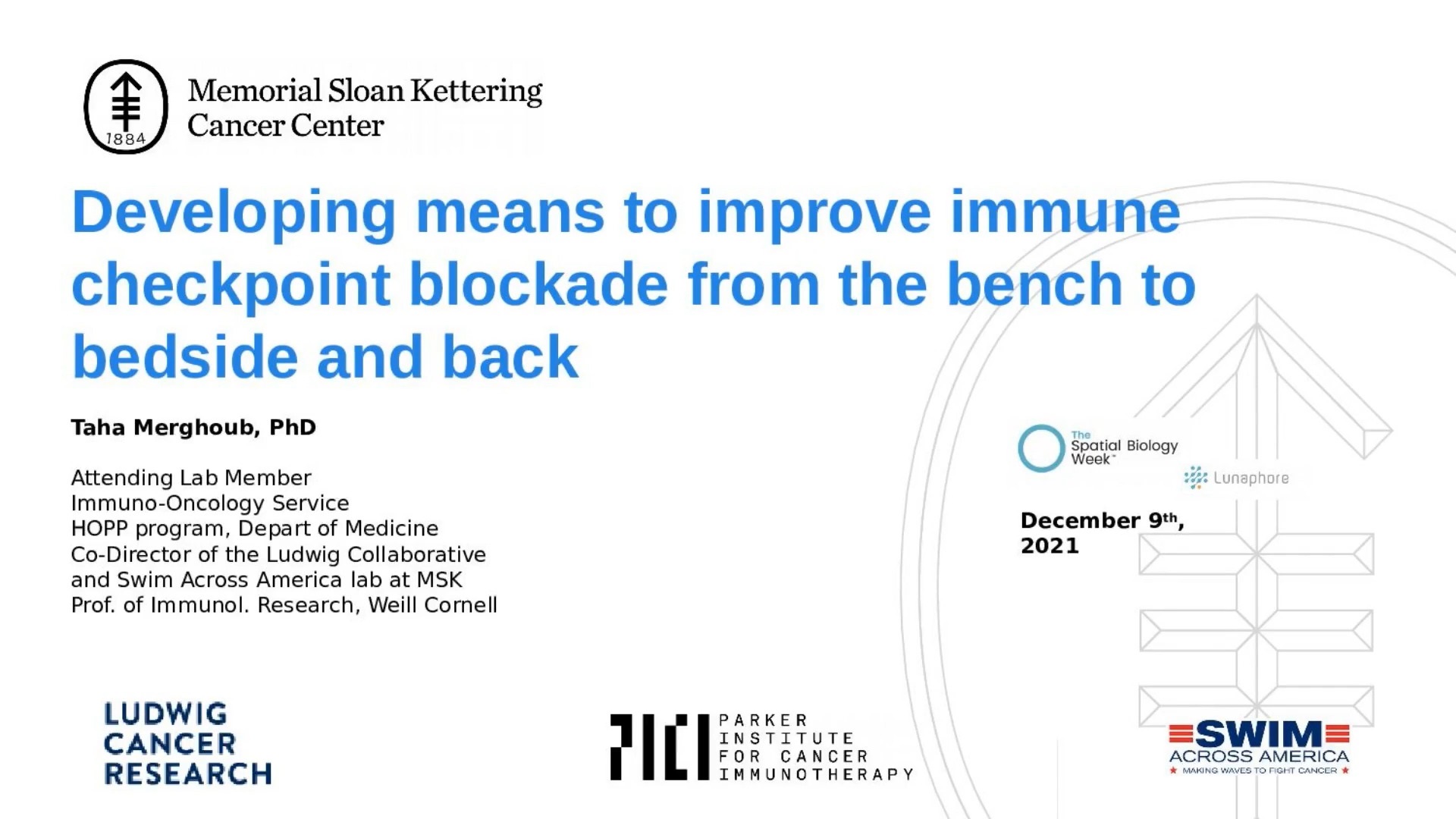Developing means to improve immune checkpoint blockade from the bench to bedside and back
Immune checkpoint blockade (ICB) utilizing antibodies that block PD-1, PD-L1, and CTLA-4 has changed cancer patient care and started a new era, with long-term durable disease control in a subset of patients across multiple cancers. However, most patients do not respond to ICB therapy, and many who initially respond eventually develop recurrent and progressive disease. Our laboratory seeks to understand why this approach is active in some patients but ineffective in others, why some patients develop resistance to therapy, and how to overcome these barriers to ICB and generate effective systemic antitumor immunity. We present examples of rationally designed combination therapies based on the changes in the immune system, systemically in the tumor microenvironment. These studies have been paralleled both in murine models and clinical settings. We hope these studies provide a framework for future early pre-clinical and clinical studies.
Agenda:
- Timing of the immune interventions is key;
- Targets must be present during the intervention;
- Immune precision approaches should be developed and guide the rational design of future clinical trials.
